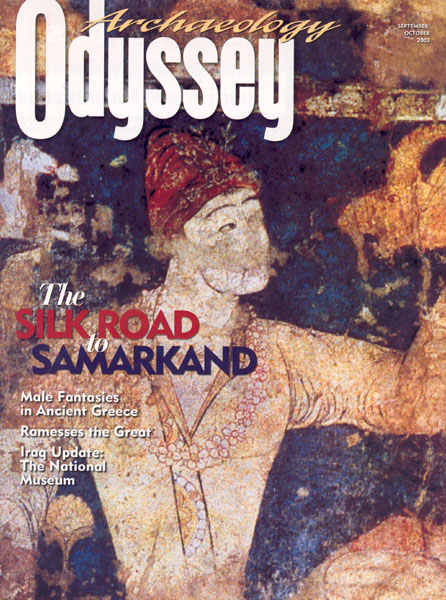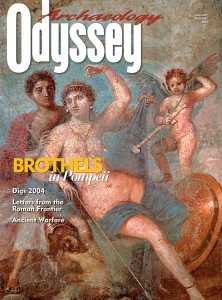
Alphabet Soup
Although I have an M.A. in historical preservation, serve on the Executive Board of the Wyoming State Historical Society and have a reasonable knowledge of history and archaeology, your use of C.E. and B.C.E. baffles me. You do not even use these designations uniformly throughout the magazine.
Every now and then we do need to explain our policy concerning this (somewhat confusing) system of designating the eras. In recent decades many scholars have declined to use A.D. (Anno Domini) and B.C. (Before Christ) because of their religious implications; instead, they have chosen to use the neutral designations C.E. (Common Era) and B.C.E. (Before the Common Era)—which refer to exactly the same periods of time as do the older ones. Our policy is to use the older A.D./B.C. designations, but we allow authors their preference.—Ed.
Questioning the Taboos
In “Male Fantasies” (September/October 2003), Timothy McNiven writes that the erastes-eromenos “pairings ended when the youth reached adulthood.” Where does this assertion come from?
Also, McNiven writes, “Homosexual relations between adult men were strongly criticized.” By whom? I know of no classical source that says any such thing.
Already a library member? Log in here.
Institution user? Log in with your IP address.

